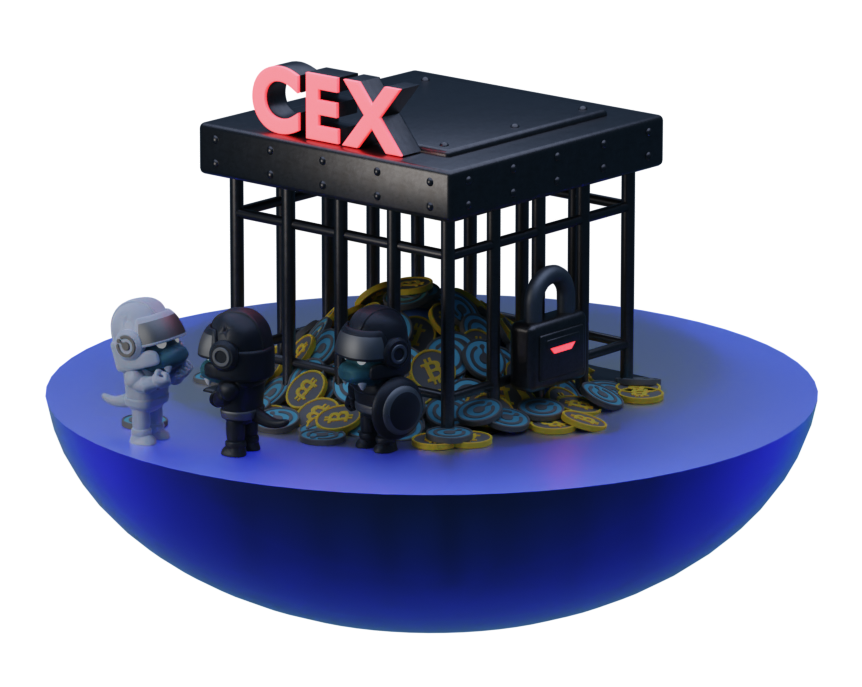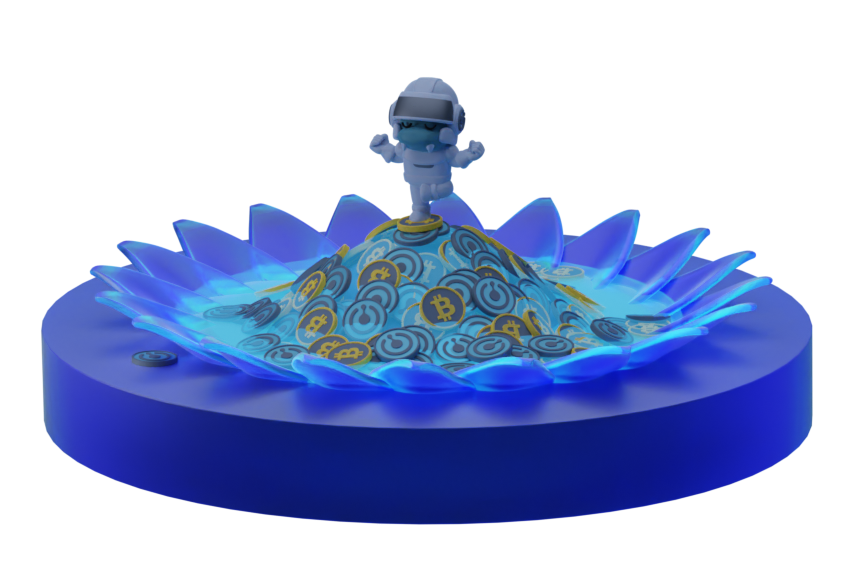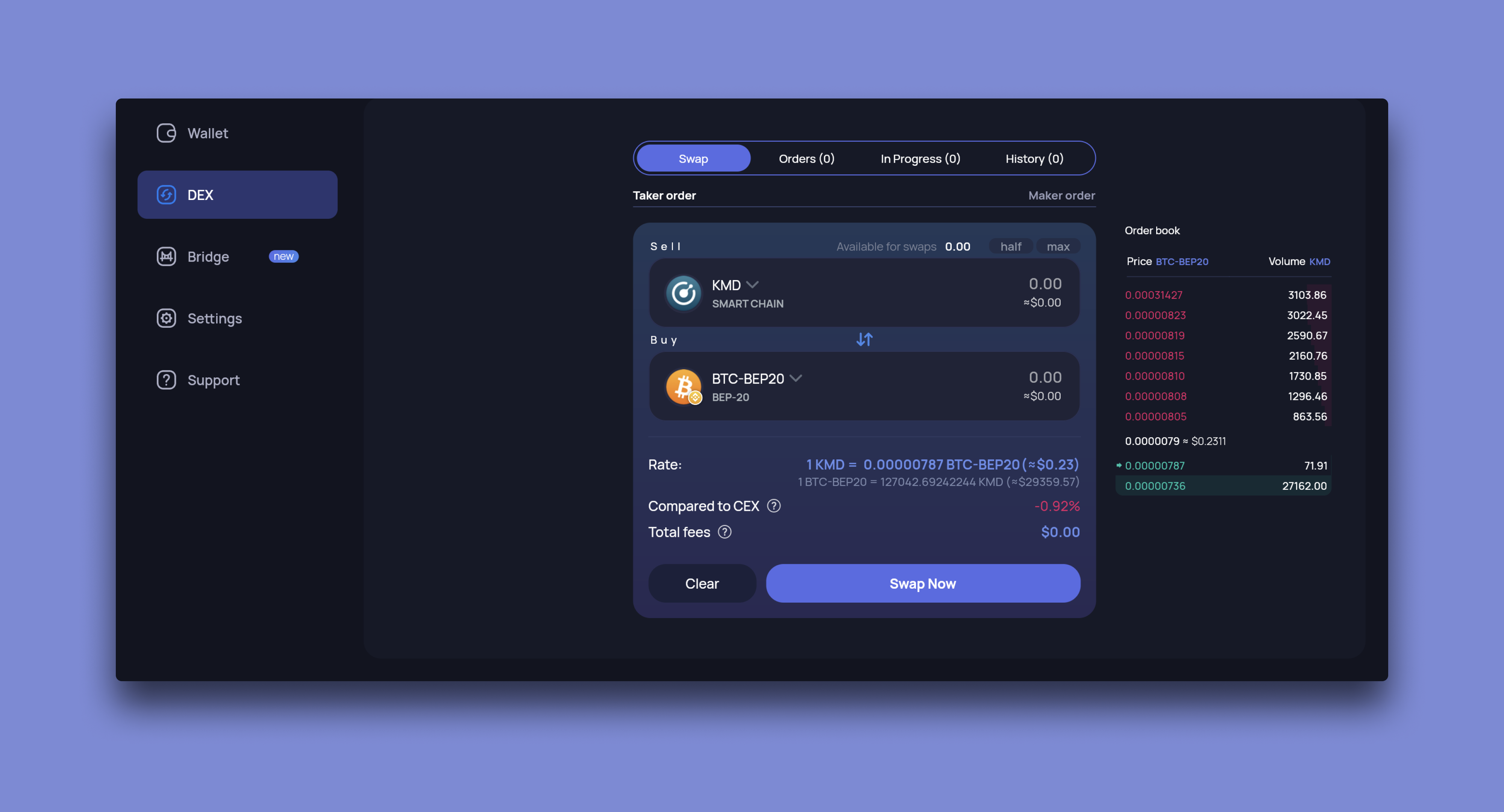
Navigate Crypto with Confidence and Ease
Receive a FREE guide by signing-up to the Komodo newsletter.
Free Your Crypto!
Your coins prefer to live free, don't abandon them.

Are you holding the private keys to your crypto? If the answer is no, you're not calling the shots. Why surrender custody to a third party, not knowing what they might do with your assets - or if they even hold them all? But remember - with great power comes great responsibility!

Take Custody...
Crypto ownership isn't just about buying coins or tokens. It's about
maintaining full control, safeguarding your assets, and ensuring only
you can make decisions about them.
...And Bypass All Common Stumbling Blocks

Exchange Hacks
The risk of centralized exchanges being hacked is a significant concern. Even if a centralized exchange has robust security measures in place, they're still a tempting target for cyber-criminals.

Operational Shutdowns
An exchange could cease operations due to regulatory issues, bankruptcy, or other unforeseen problems. In such a case, you may have difficulty accessing your crypto assets.

Coin Delistings
Exchanges may delist certain cryptocurrencies due to low trading volumes, regulatory concerns, or other reasons. You might lose your coins if you don't actively follow news & announcements.
We Are Here To Guide You
Grasping control implications, responsibilities, and security can be challenging at first.
Get The Instructions
Follow our simple steps, and you will be all set!
The concept of "your keys, your coins" is unfamiliar territory for many. To keep your crypto safe, you'll need a non-custodial wallet and physical backups. We'll guide you through the entire process and best practices. Sign up to receive our guide, and you'll elevate your entire cybersecurity setup. To keep your crypto safe, you'll need a non-custodial wallet and physical backups. We'll guide you through the entire process and best practices. Sign up to receive our guide, and you'll elevate your entire cybersecurity setup.
People often underestimate security until they experience a hack – but you can be the exception! By adhering to our guiding principles, you can significantly minimize the risk of losing your funds. A responsible wallet user will have lower risks than someone keeping their funds on an exchange.
Many newcomers are confused by the jargon of the crypto world. Words like 'blockchain', 'hash rate', 'DeFi', 'NFTs' can all seem like a foreign language. In our guide, we cover the most common words and definitions to get you started.
In simple terms, a custodial service is like your bank – it holds your assets. The crypto world is full of such custodial entities, some of which might not be very reliable. Hacks, scams, and bankruptcies are frequent. Instead of trusting a third party, you can store your assets in your own wallet. There's no custodial in this case, hence the term "non-custodial." Start your journey with our non-custodial wallet – "Komodo Wallet." Sign up for our newsletter to learn all about it.
Soon In Your Inbox
Exclusive updates, insight, and opportunities

CRYPTO TRENDS
Stay Ahead of the Curve
Be the first to know about emerging trends, tech, and opportunities
in the blockchain and crypto space. Keep your knowledge up-to-date.

PODCAST
Voices of Komodo
Never miss an episode! Get notifications about future podcast releases. Dive deeper into the crypto universe.

PRODUCT UPDATES
Komodo Wallet
Keep up-to-date with our non-custodial wallet. Receive all the latest features, enhancements, and news.

COMMUNITY UPDATES
Be a Part of the Movement
Stay connected with our active community. Get regular updates about our open-source projects, events, and initiatives.